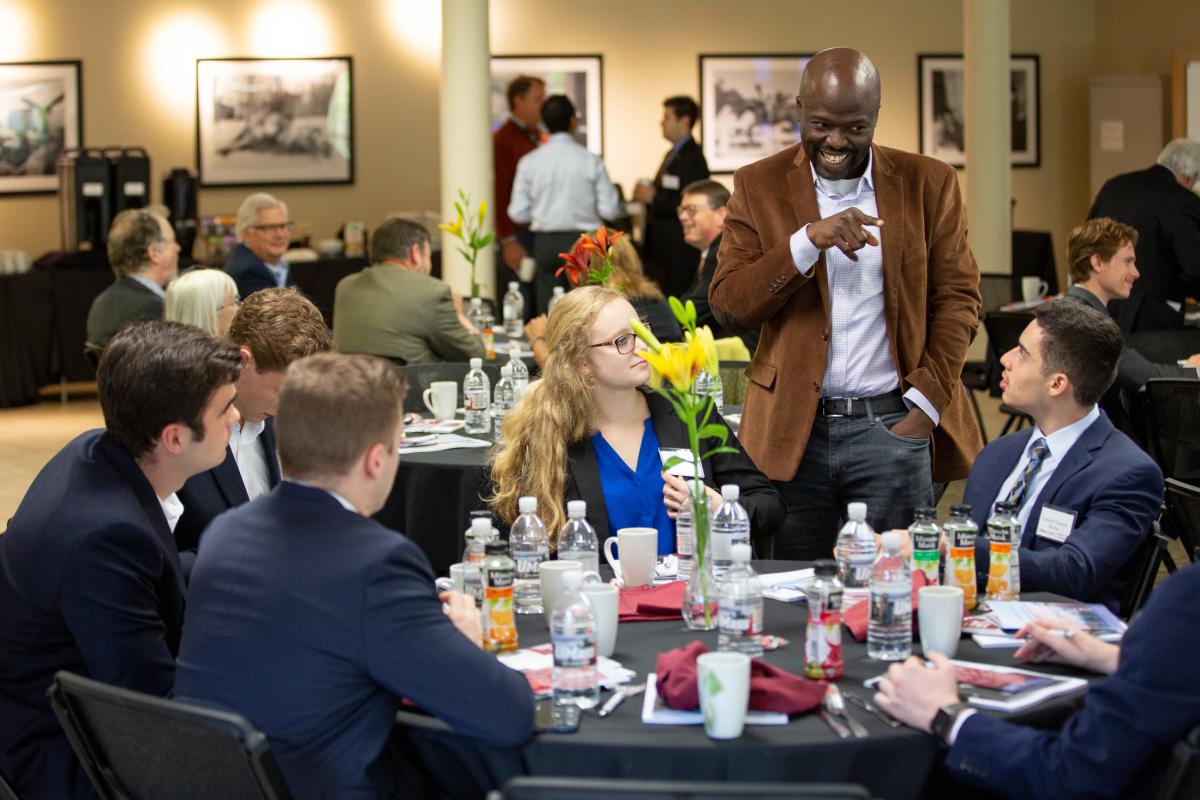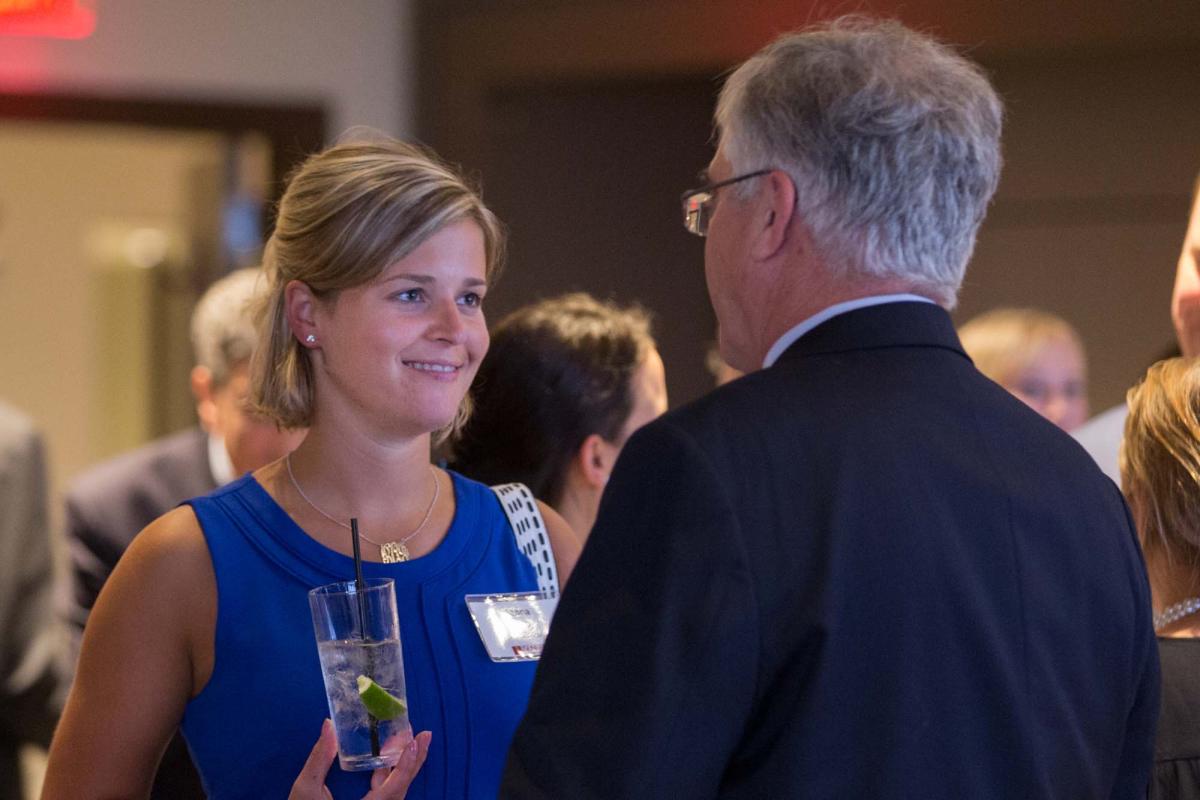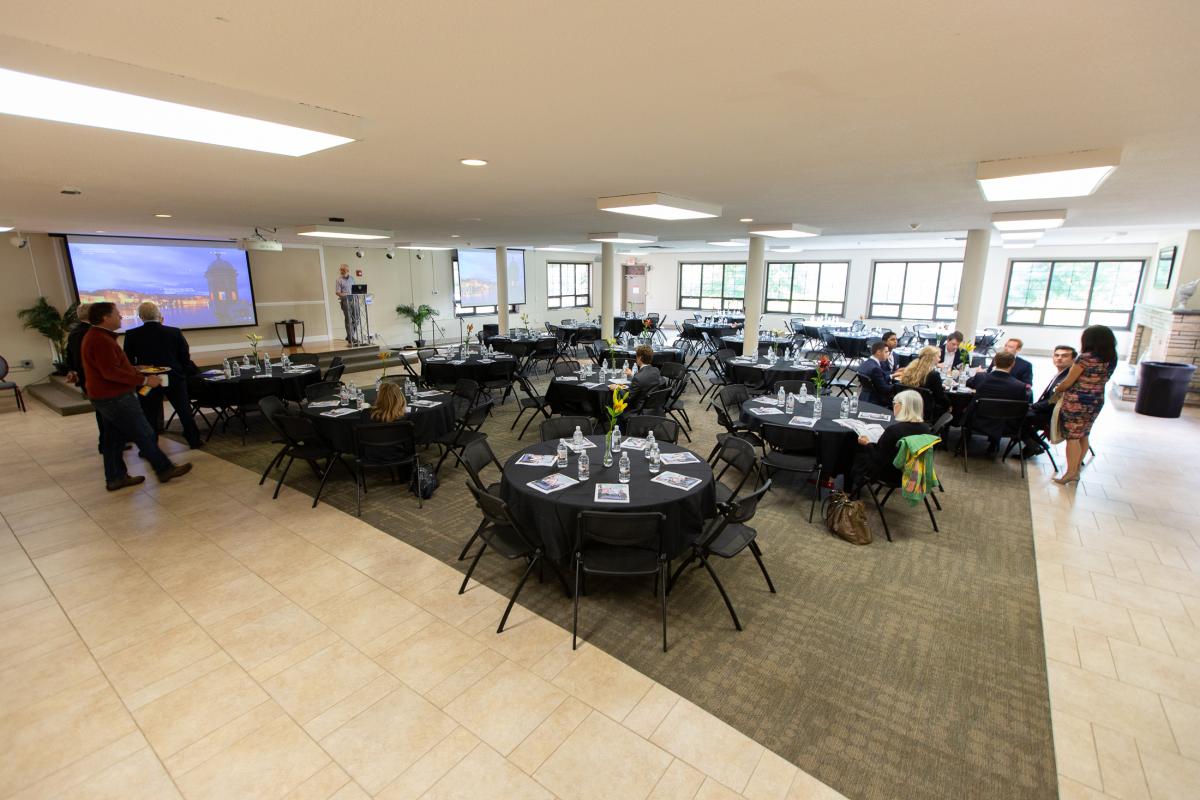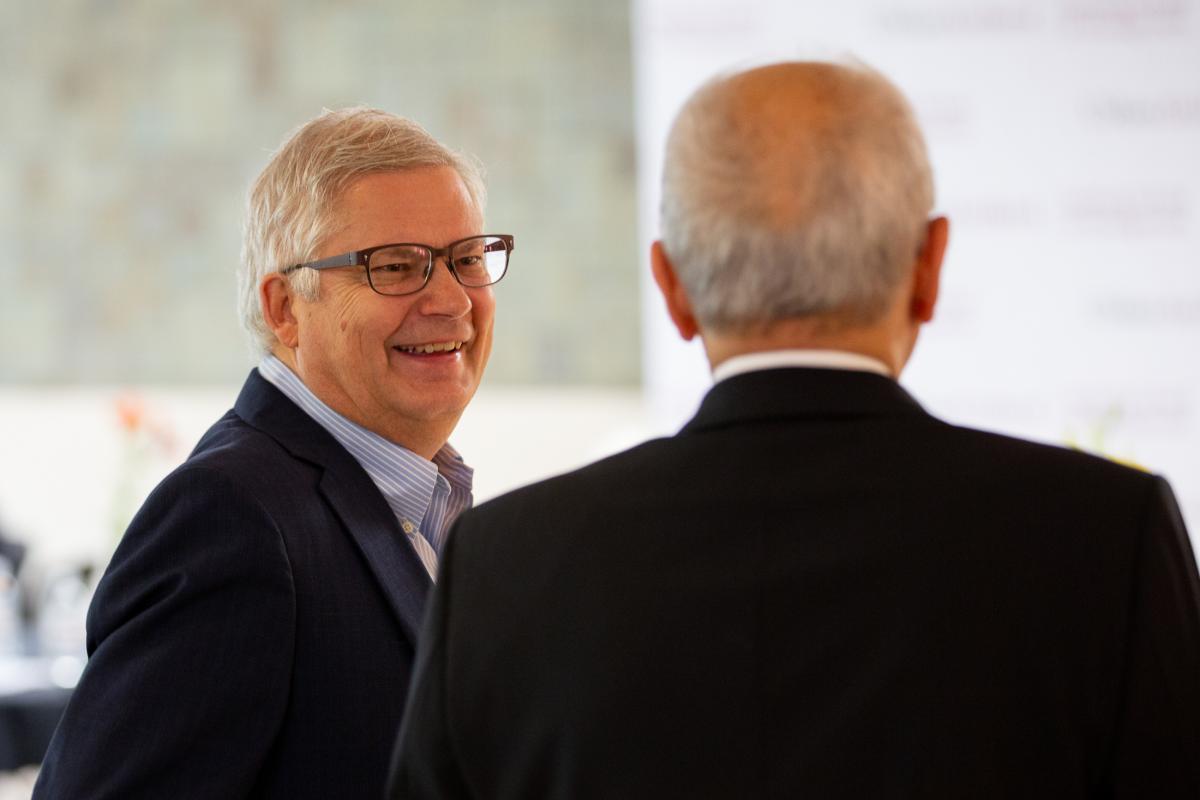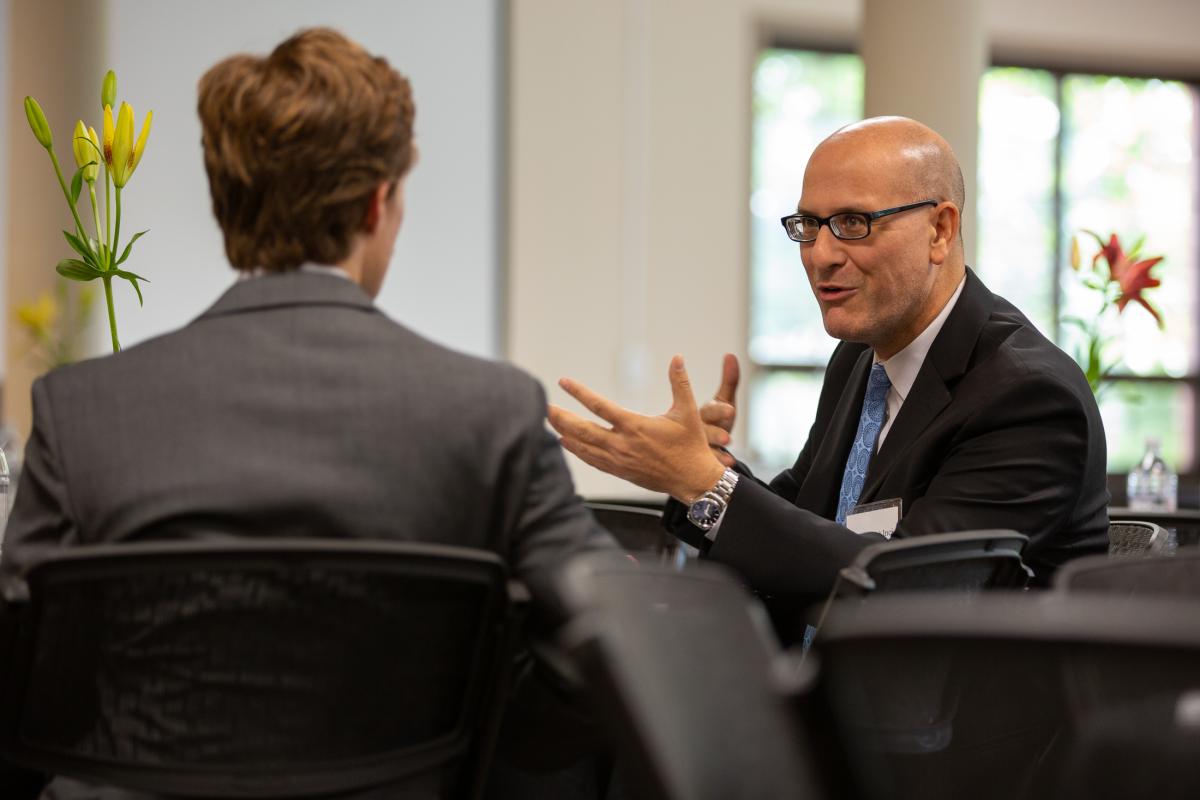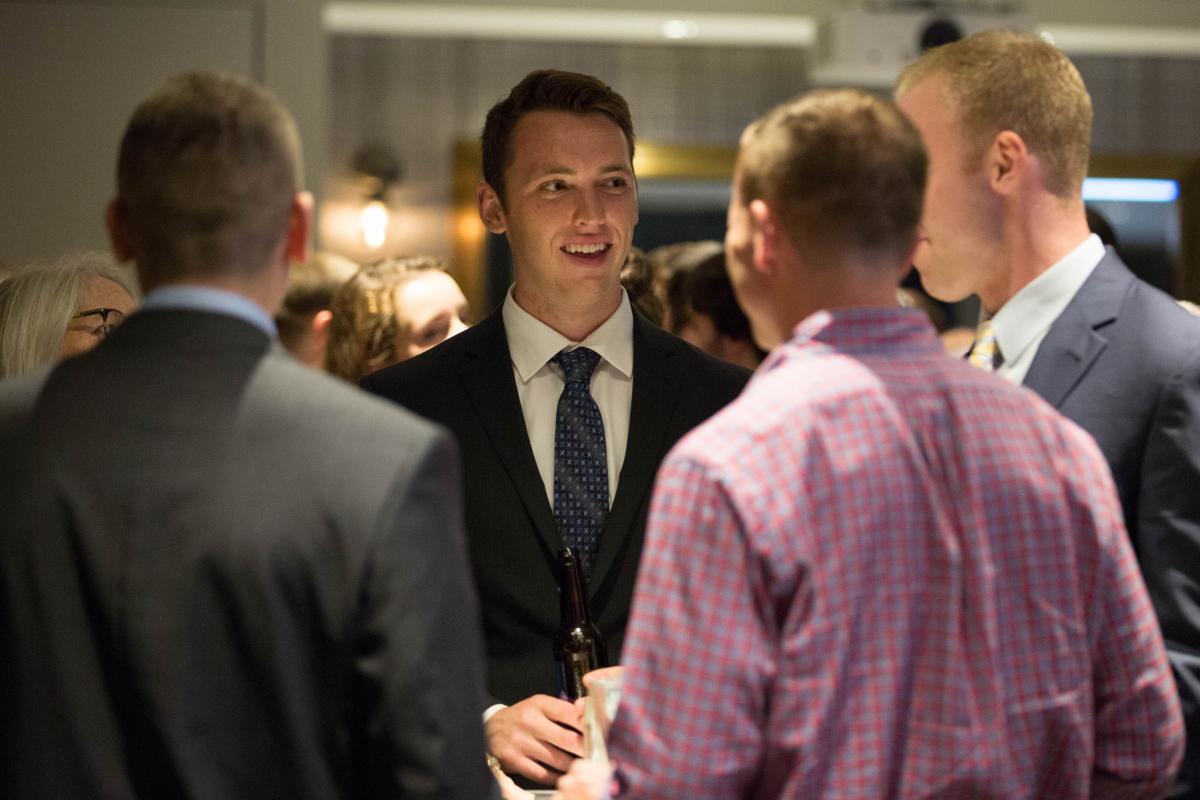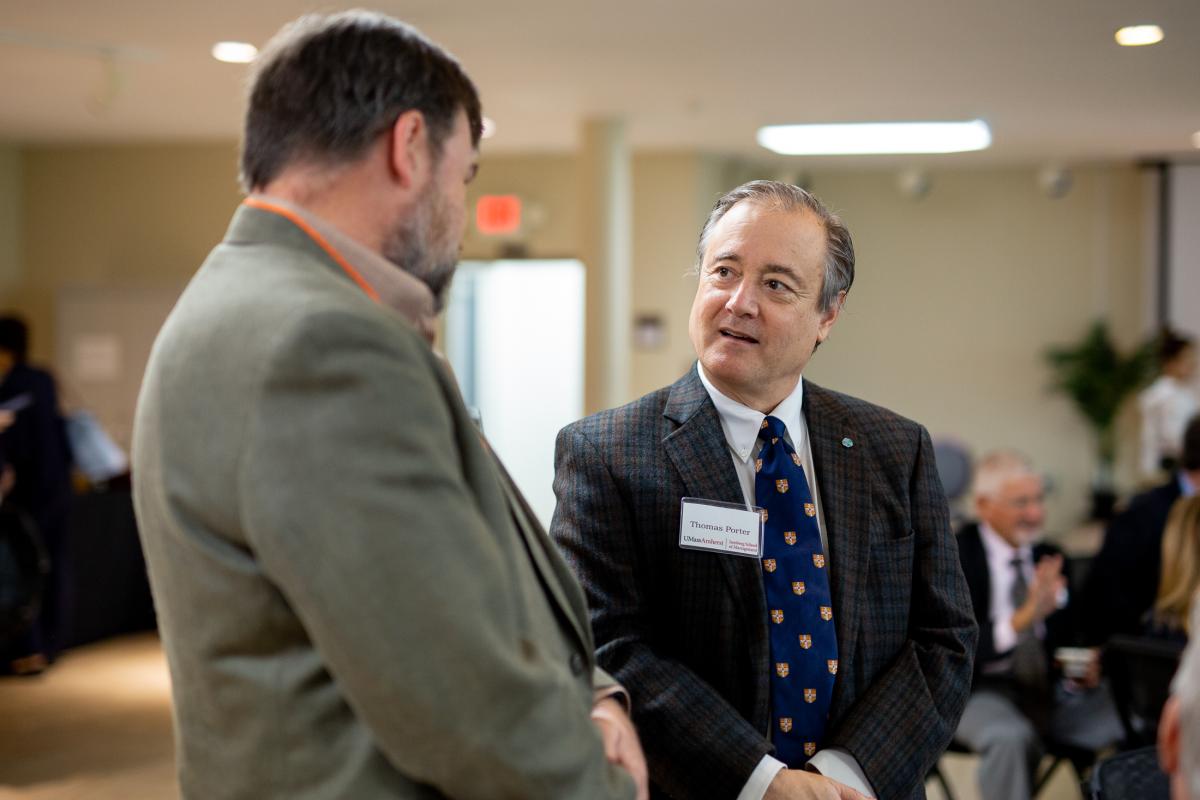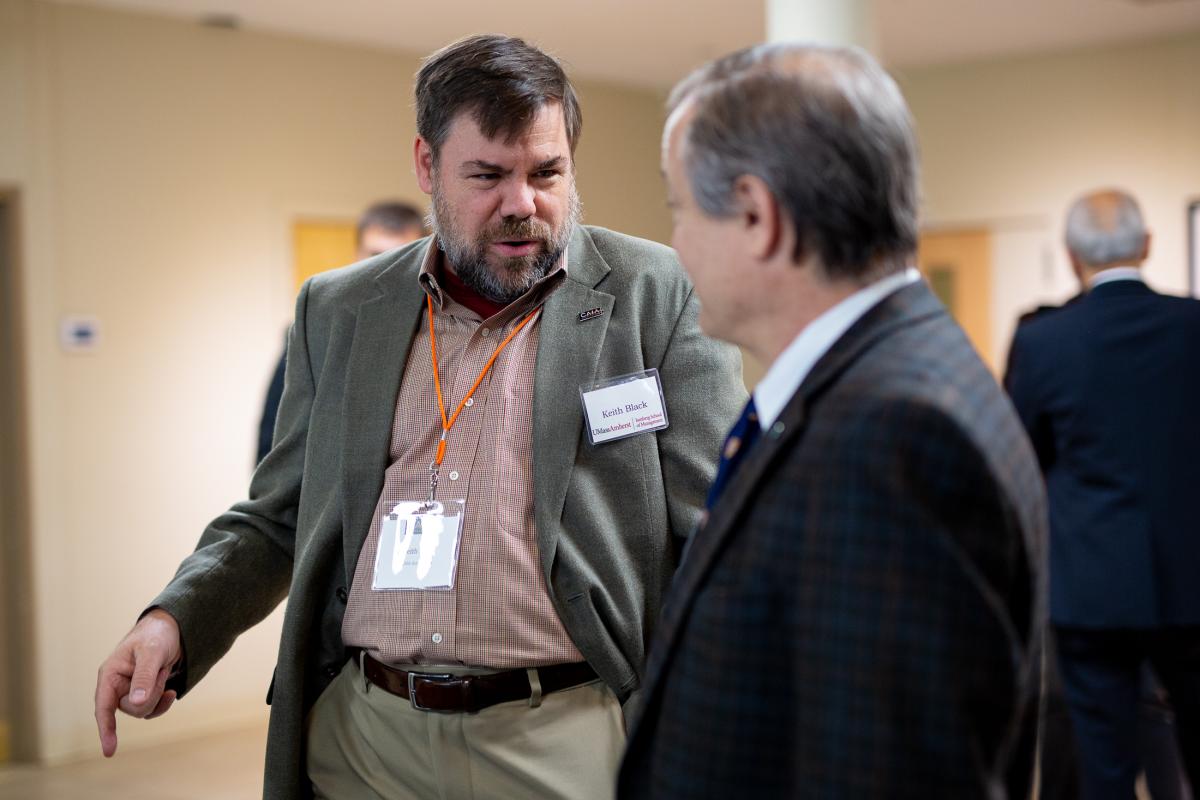Lawrence Summers Explores Economic Challenges at CISDM Conference
October 10, 2019
Challenges to the U.S. and Global Economies was the theme of this year’s annual CISDM conference, on October 4th at UMass Amherst’s Mount Ida Campus. In recent years, CISDM—Isenberg’s Center for International Securities and Derivatives Markets—has highlighted macro policy issues, including economic and environmental sustainability and implications of the Great Recession. This year’s conference featured a wide-ranging conversation with Larry Summers and an explication of Modern Monetary Theory by one of its leading proponents, Stephanie Kelton. The conference’s audience of 100 also gained insights from Irving Wladawsky-Berger on the future of work in the digital economy and from Mihir Desai on the relationship between finance and the humanities.
Insights and Advice
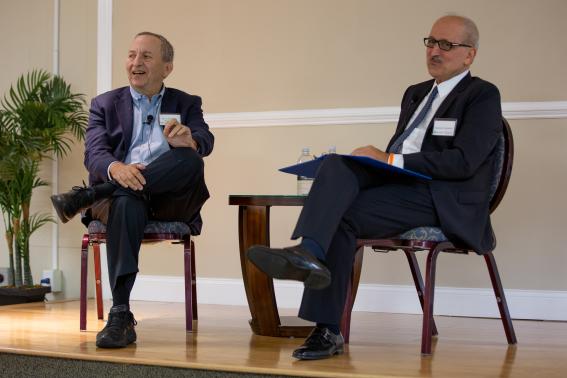
“We’ve floored it, yet growth has been much slower than expected,” Summers emphasized. That, he added, reflects a worldwide phenomenon, the upshot of which is that governments will need to rely more on fiscal policy and spending. “Going forward, we’ll need to think differently about debt,” Summers said, pointing out that economists will need to focus on a new question: How do we stimulate investment with regulation that generates broad-scale social and environmental security?
Summers speaks from authority in both theory and practice. A former president of Harvard University, he has been a key architect of U.S. economic policy-making for three decades. He served as treasury secretary for President Clinton, director of the National Economic Council for President Obama, and chief economist of the World Bank, and currently is the Charles W. Eliot University Professor at Harvard.
With this year’s conference focused on international economic challenges, Summers shared his thoughts about trade relationships, saying he expects the U.S.-China relationship to eclipse all others over the next quarter century. It is fraught with risks, he added, pointing out that other upstarts have not lived up to their promise. Russia’s prosperity and emergence as a leading economic player was overstated. Japan’s progress during the 1980s and 1990s became a bubble. China, though, is different, according to Summers. Its vast resources, population, and penchant for debt financing make it a formidable economy, but it often deploys its unity and nationalism in opposing American interests. This can make tariff one-upmanship tricky. “What strategic purpose do we gain in protecting steel and soybeans?” Summers asked. “We alienate the world.” Establishing credibility to make our threats believable is troubling, he lamented. “I worry that we’re creating a self-fulfilling prophecy.”
Time for Creative Thinking
Answering an earlier question about the shelf life of economic models and theories, Summers underscored the importance of adaptive change in economic thinking and measurement. Malthusian theory, he noted, explained things pretty well from 10,000 B.C. until around 1800. “Then,” observed Summers, “the world changed.” Today’s globally interconnected financial system, he continued, also calls for novel approaches that transcend traditional Keynesian and monetarist models. One such recasting, he noted, is the work of Stony Brook University economist Stephanie Kelton, who followed Summers on the CISDM program.
An Expanded Take on Monetary Policy
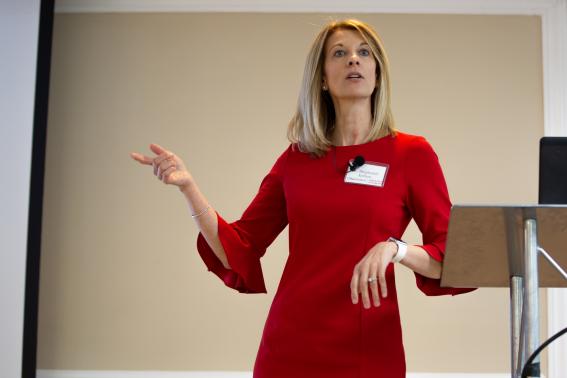
By and large, the Fed, noted Kelton, focuses on one price—the overnight interest rate. Consider, though, she said, a very different policy lever—“the return of fiscal policy via Modern Monetary Theory.” MMT represents a “paradigm shift,” a “Copernican moment,” she insisted. It views the government‘s balance sheet in strikingly broader terms. When spending exceeds revenue, the government’s deficit gets credited as a surplus in the economy. Deep sixing the specter of deficit guilt frees up government to stimulate the economy and fuel social programs.
“The government’s budget is nothing like a household’s,” she advised. “It can’t go broke because it is the monopoly issuer of money and spending.” It doesn’t need to tax or borrow to spend, she said. “Taxes are for subtraction; deficits are deposits.” Kelton’s model includes tactics to deal with an overheating economy: “Inflation signals that there is too much money in the economy,” she observed. The government can tamp down the process by raising taxes and issuing bonds.
Ultimately, Kelton observed, the national debt is not a thing to worry about: “We can change the national debt clock to the U.S. dollar savings clock.”
Other Presentations
The conference began with a presentation on the future of work in our digital economy by MIT Sloan School Research Affiliate Irving Wladawsky-Berger. Three pillars of that economy, he noted, are the internet of things, blockchain technologies, and artificial intelligence/big data. Wladawsky-Berger explored critical questions: Will there be enough work in the future? How will human beings and machines coevolve? What will education contribute to the equation? Moving forward, governments must make job creation a priority, he said. In embracing advanced technologies, companies must carefully manage workforce transitions. Fast-changing labor markets, he added, will call for safety nets and innovative social programs.
Following Wladawsky-Berger, Mihir Desai, a professor of finance at the Harvard Business School, explored bridges between finance and the humanities. The latter, he emphasized, can cast new light on financial principals and behavior. And finance, he added, can offer “surprising insights on common aspects of our shared humanity.” Desai illustrated those synergies through examples that shed light on risk and insurance, value creation, corporate governance, leverage, bankruptcy, and other financial concepts. The wiles and unintended consequences of Mel Brooks’s The Producers offer lessons on corporate governance, he noted. Van Eyck’s Arnolfini Portrait, which depicts a prosperous husband and his pregnant wife, illustrates the merger of families, and by extension, business mergers. “The gulf between finance and the humanities is a real loss,” Desai concluded. Finance benefits from much-need humanization. And from finance, the humanities gain a “noble” set of ideas.
